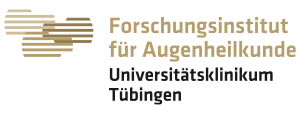With a grant of EUR 3.6 million from the Horizon 2020 Research Frame-work Programme, the European Union is funding an international training network in the field of short-sightedness research for four years. Professor Frank Schaeffel, head of the Section for Neurobiology of the Eye at the Institute for Ophthalmic Research at the University Hospital Tübingen is the network co-ordinator. This was the third time in a row that Professor Schaeffel was able to bring the coveted doctoral network to the University of Tübingen in a highly competitive application process. As a follow up to the training networks "MyEuropia" (2006-2010) and “OpAL” (2011-2015), the new project is called "Myopia: Fundamental Understanding Needed (MyFun)" (2016-2020). The network will provide training for early stage researchers in the first four years of their academic career and comprises seven institutes and technology companies from five countries (Germany, Spain, Sweden, Ireland, Belgium). Recently, consortium members met in Tübingen for the project launch.
According to an analysis by Australian researchers, almost half the world's population will be short-sighted by 2050. Short-sightedness (myo-pia) often develops after the start of school, between eight and 15 years of age. Although there is evidence for a genetic component, currently researchers assume that short-sightedness in industrial nations is mostly linked to a high level of education and depends on visual experience. Too much nearwork, e.g. when reading or working on computer screens, or a lack of daylight are currently being discussed as key factors for myopia development. Apart from corrective measures including glasses or laser treatment there is still no treatment available and there are no options for completely preventing myopia progression. It is only possible to slow down the progression by spending more time in daylight or by means of optical or pharmacological measures.
Why some people become myopic while others do not and what determines when it starts, what factors are exactly involved and why optical interventions only have a limited effect are just some of the questions that are still unresolved after more than 40 years of research and which will now be investigated further within the scope of “MyFUN”. The network will provide funding for 14 doctoral researchers who will each work on an individual research project, taking different approaches to answer these research questions.
Frank Schaeffel is extremely satisfied with the start of the project: "We have developed an almost family-like network and thanks to the latest funding we are now able to jointly tackle fundamental questions of myopia research for another four years. An outstanding success story is the collaboration with two of the eight MyFUN principal investigators: Their scientific careers began as doctoral students in our previous networks.”
MyFun was just as successful against strong competition as its predecessors “MyEuropia” and “OpAL”: From 1318 applications to the Marie Sklodowska-Curie Actions (MSCA), only 106 selected training networks received funding in 2016. With the MSCA measures, the EU wants to form a strong pool of European researchers and increase the attractiveness of Europe for researchers. Funding is provided for the structured training of early stage researchers, in the case of MyFUN within the scope of an Innnovative Training Network (ITN). These networks include research activities such as summer schools, training seminars with scientific subjects, soft skills courses and workshops in addition to individualized training in research. They are also part of the EU mobility actions: All junior researchers who will receive training must relocate to a country different from the one in which they were resident in for the past three years.


